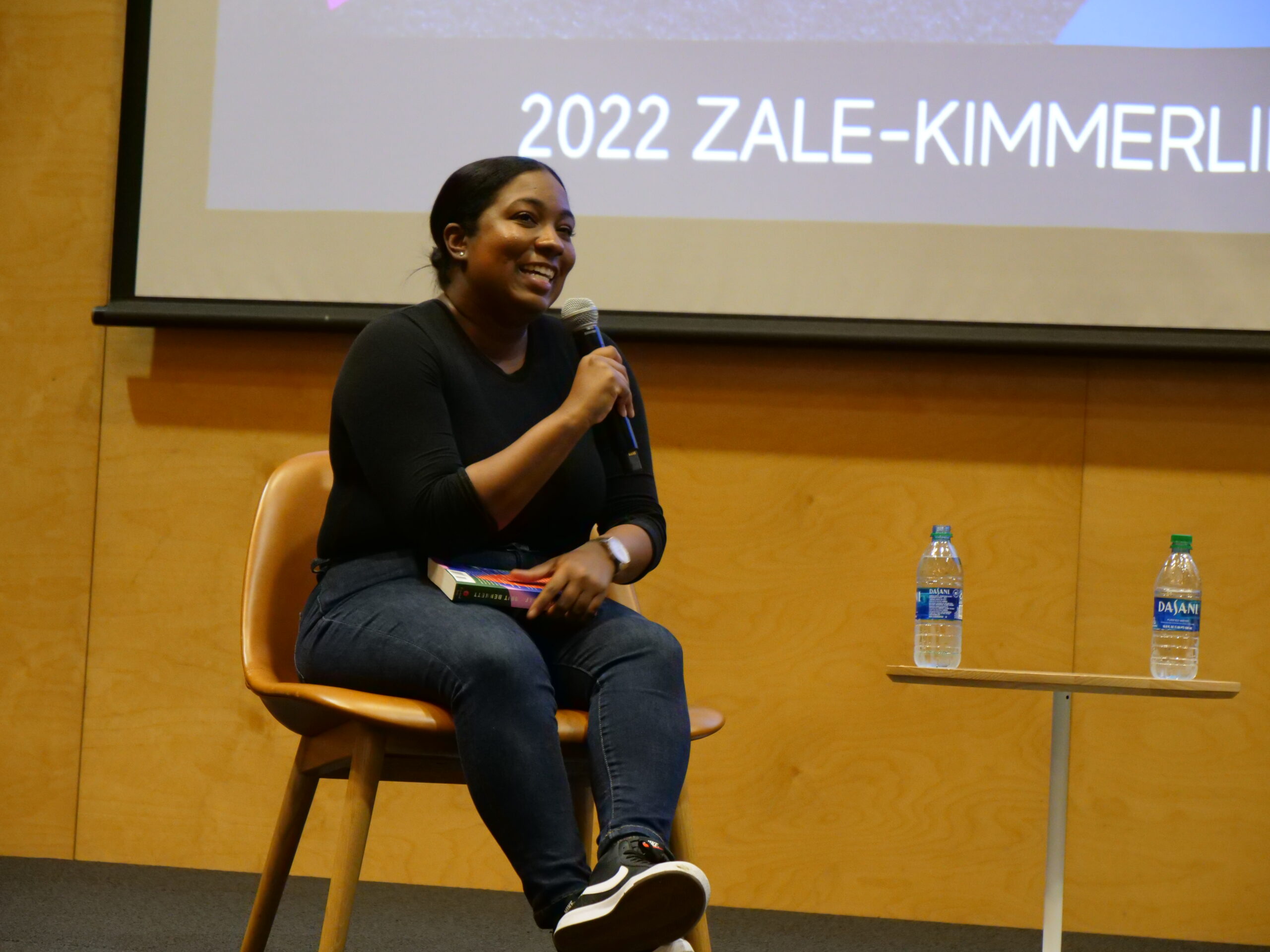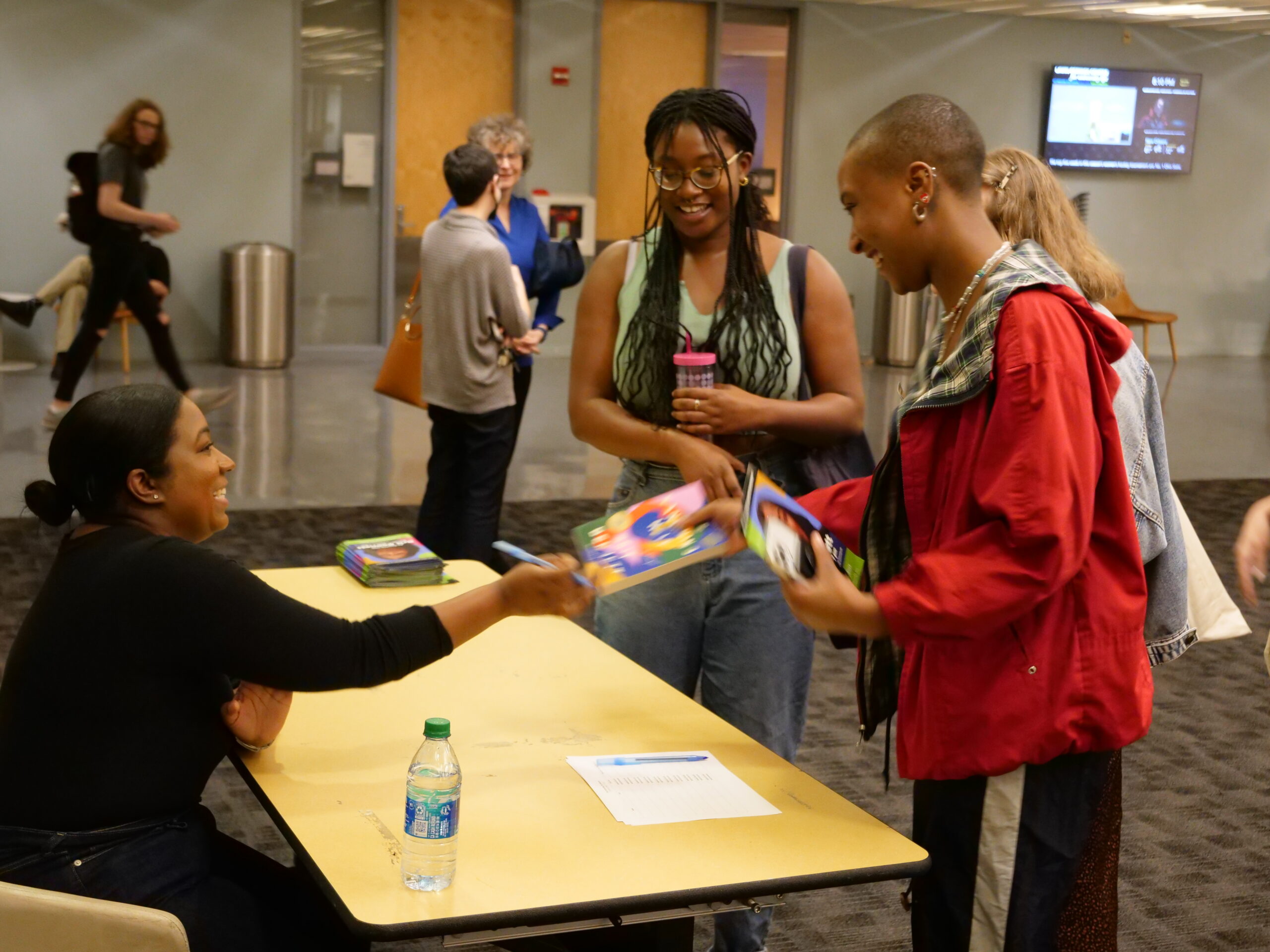By Laura Wolford
Brit Bennett speaks at an in-person reading and interview & students ask Bennett to sign their copies of The Vanishing Half
Newcomb Institute was thrilled to host Brit Bennett as the 2022 Zale-Kimmerling Writer-in-Residence this past spring.
Born and raised in Southern California, Brit Bennett graduated from Stanford University and later earned her MFA in fiction at the University of Michigan. Her debut novel, The Mothers, was a New York Times bestseller and a finalist for both the NBCC John Leonard First Novel Prize and the PEN/Robert W. Bingham Prize for Debut Fiction. Her second novel, The Vanishing Half, was an instant #1 New York Times bestseller, longlisted for the National Book Award, a finalist for the Women’s Prize, and named one of the ten best books of the year by The New York Times. Bennett has been named a National Book Foundation 5 Under 35 honoree, a NAACP Image Award Finalist, and one of Time’s Next 100 Influential People. Her essays have been featured in The New Yorker, The New York Times Magazine, The Paris Review, and Jezebel.
Newcomb organized a series of events for Bennett’s visit, including a delightful in-person reading and an interview. Bennett was introduced by student Taegan Bunch, who was ecstatic to meet Bennett.
“I keep feeling the need to pinch myself that I will be in the same room as one of my favorite authors in just a few hours,” remarked Bunch prior to meeting Bennett at dinner.
At the public reading, Bennett was joined on stage for an insightful conversation with Tulane professor Dr. Ebony Perro. Afterward, Bennett signed books for a long line of eager readers. Both Bennett’s reading and interview were broadcast via Zoom so the occasions could be shared with Newcomb Alumnae Association book club members across the country, who had read The Vanishing Half as their book selection for the spring.
Bennett’s time on campus included a number of class visits to courses in the Tulane history department, gender and sexuality studies, and creative writing. These class visits allowed for small groups of students to engage in conversation with a celebrated writer whose work engages with issues of gender, race, place, and history.
Perhaps most engaging for students were the two book club lunches hosted by Newcomb, one with a group of Honors Scholars students in conjunction with Newcomb-Tulane College, and one with students who signed up for this opportunity. Both groups were small, intimate conversations between students and Bennett, and the feedback was overwhelmingly positive.
Overall, Brit Bennett’s visit was a time marked by community, storytelling, and creative inspiration.


